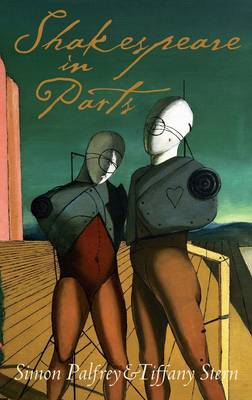
- Afhalen na 1 uur in een winkel met voorraad
- Gratis thuislevering in België vanaf € 30
- Ruim aanbod met 7 miljoen producten
- Afhalen na 1 uur in een winkel met voorraad
- Gratis thuislevering in België vanaf € 30
- Ruim aanbod met 7 miljoen producten
Zoeken
€ 128,95
+ 257 punten
Uitvoering
Omschrijving
A truly groundbreaking collaboration of original theatre history with exciting literary criticism, Shakespeare in Parts is the first book fully to explore the original form in which Shakespeare's drama overwhelmingly circulated. This was not the full play-text; it was not the public performance. It was the actor's part, consisting of the bare cues and speeches of each individual role. With group rehearsals rare or non-existent, the cued part alone had to furnish the actor with his character. But each such part-text was riddled with gaps and uncertainties. The actor knew what he was going to say, but not necessarily when, or why, or to whom; he may have known next to nothing of any other part. Starting with a comprehensive history of the part in early modern theatre, Simon Palfrey and Tiffany Stern's work provides a unique keyhole onto hitherto forgotten practices and techniques. It not only discovers a newly active, choice-ridden actor, but a new Shakespeare.
Specificaties
Betrokkenen
- Auteur(s):
- Uitgeverij:
Inhoud
- Aantal bladzijden:
- 560
- Taal:
- Engels
Eigenschappen
- Productcode (EAN):
- 9780199272051
- Verschijningsdatum:
- 17/11/2007
- Uitvoering:
- Hardcover
- Formaat:
- Ongenaaid / garenloos gebonden
- Afmetingen:
- 165 mm x 236 mm
- Gewicht:
- 1088 g

Alleen bij Standaard Boekhandel
+ 257 punten op je klantenkaart van Standaard Boekhandel
Beoordelingen
We publiceren alleen reviews die voldoen aan de voorwaarden voor reviews. Bekijk onze voorwaarden voor reviews.











